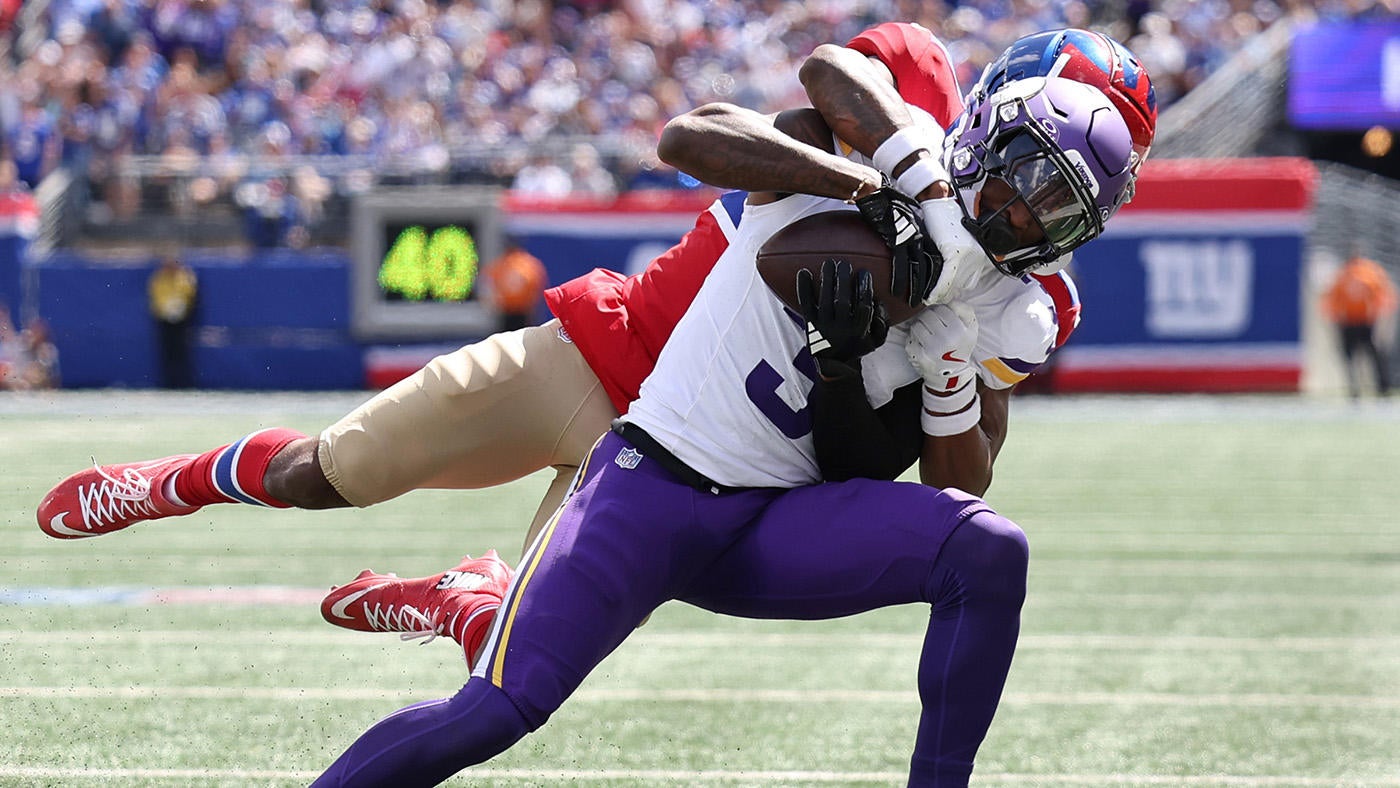
The NFL spent the offseason defining — and then outlawing — the dangerous hip-drop tackle with some level of conversation and controversy.
In Week 1, there were no flags for such a tackle. But that doesn’t mean it didn’t take place.
Sources tell CBS Sports the NFL identified two hip-drop tackles that should have been called on the field as penalties. The defenders who performed the tackles will be subject to fines, which will be announced Saturday afternoon.
The tackle, which owners voted to penalize during the league meetings in the offseason, was seen in the Vikings-Giants and Jets-49ers games, and both resulted in missed time for players.
Giants linebacker Darius Muasau tackled Vikings wide receiver Jordan Addison early in the third quarter of Minnesota’s win that resulted in an ankle injury for Addison. The second-year receiver did not return to the game, and he did not practice Wednesday or Thursday leading up to Sunday’s game against the 49ers.
Jets cornerback Michael Carter II tackled 49ers receiver Jauan Jennings early in the third quarter of Monday night’s loss to San Francisco. Jennings left the game but returned later in the quarter.
A flag on the play would have resulted in a 15-yard penalty and automatic first down but one wasn’t thrown. Both the Vikings and 49ers scored on those drives anyway.
Here’s how the NFL defines the hip-drop tackle:
It is a foul if a player uses the following technique to bring a runner to the ground: (a) grabs the runner with both hands or wraps the runner with both arms; and (b) unweights himself by swiveling and dropping his hips and/or lower body, landing on and trapping the runner’s leg(s) at or below the knee.
All along, the NFL has said it didn’t expect many flags to be thrown on the play, which the league says has an injury rate between 20-25 times higher than a normal tackle.
“Do we have a problem? The answer was yes,” NFL competition committee chairman Rich McKay said in March. “This will be a hard one to call on the field, you have to see every element of it. We want to make it a rule so we can deal on the discipline during the week.”
Back in the spring, the NFL Players Association asked the league to reconsider banning the tackle as it could create confusion among players.
“While the NFLPA remains committed to improvements to our game with health and safety in mind, we cannot support a rule change that causes confusion for us as players, for coaches, for officials and especially, for fans,” the NFLPA said in a statement. “We call on the NFL, again, to reconsider implementing this rule.”
Just because the play isn’t flagged in real time doesn’t mean there won’t be punishment. The NFL can fine first-time offenders $16,883 for performing the tackle. A second offense would cost a player $22,511 in fines. The league can also choose to warn players via a letter before issuing a fine.
Similar to illegal use of helmet plays, the hip-drop tackle will likely result in more fines than flags. Plays like a horsecollar tackle, late hit, blindside block, hit on a defenseless player and roughing the passer all call for the same fine amount as the hip-drop tackle, according to the NFL’s fine schedule.





